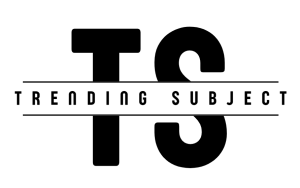For decades, Jennifer Lopez has been a cultural powerhouse—a global superstar whose name alone could sell out arenas, top music charts, and headline blockbuster films. But 2024 has not been kind to Jenny from the Block. With an underperforming album, a rebranded and partially canceled tour, and now a floundering UK box office release for her latest film, Unstoppable, Lopez is finding herself in unfamiliar territory: the wrong side of success.
Let’s start with her ambitious triple-threat project: the album This Is Me…Now, the accompanying quasi-musical film This Is Me…Now: A Love Story, and the documentary The Greatest Love Story Never Told. It was an unprecedented gamble—a multi-platform, deeply personal venture funded with Lopez’s own $20 million. On paper, it looked like a surefire win: a global superstar sharing her love story with Ben Affleck across music, film, and documentary platforms. In reality? The album barely scraped onto the Billboard 200 at No. 38 before vanishing from the charts altogether. The documentary and film generated buzz but failed to convert that into meaningful audience engagement.
Critics weren’t exactly brutal, but they weren’t kind either. The Guardian dismissed the film as “hopelessly middle of the road,” while The Independent noted it was “slick and sexy” but lacking in authenticity. Perhaps the most telling critique came from El Hunt of The Standard, who admitted she understood why Lopez made the project but ultimately concluded it was “not a very sensible way to spend $20 million.”
Lopez’s subsequent This Is Me…Now: The Tour was supposed to salvage the project and reignite fan enthusiasm. Instead, it faced weak ticket sales and seven canceled dates in major cities like Nashville, Atlanta, and Houston. Ticketmaster gave refunds with no explanation from Lopez’s team—a silence that spoke volumes. The tour was hastily rebranded as This Is Me…Live, shifting focus from the album’s lukewarm reception to Lopez’s proven greatest hits.
Despite the changes, the shadow of failure lingered. A comeback tour after five years should have been a triumphant victory lap. Instead, it felt like damage control.
And then came Unstoppable, Lopez’s latest film—a sports drama about Anthony Robles, a one-legged wrestler who defied the odds to become a champion. On paper, it had all the makings of an inspirational hit: a true story, a talented lead in Jharrel Jerome, and Lopez herself stepping into a supporting role as Robles’s mother. Yet, the UK box office returns told a different story—£3,112 for its opening weekend. That’s not just disappointing—it’s downright embarrassing.
The reviews have been mixed, but not entirely unkind. Critics praised Lopez’s performance, with Variety calling it “the fullest screen performance she has ever given” and The Times hailing it as “quietly effective.” But even glowing reviews can’t save a film when the audience simply isn’t showing up.
So, what went wrong?
For one, Lopez’s brand—carefully built over decades—has started to feel overexposed and overproduced. Her attempts to position herself as both a relatable everywoman and an untouchable superstar have left audiences confused. The oversaturation of Lopez content in 2024—album, film, documentary, tour—hasn’t felt like a grand artistic statement; it’s felt like a desperate bid to stay relevant in an industry that’s increasingly moving past traditional celebrity star power.
Secondly, there’s the personal factor. Lopez’s turbulent relationship with Ben Affleck—a romantic saga that’s been endlessly scrutinized since its early-2000s inception—has now taken a dark turn with rumors of separation and reported divorce proceedings. Public interest in their love story fueled the anticipation for This Is Me…Now, but as cracks began to show in their real-life fairy tale, the project’s emotional centerpiece fell apart.
And finally, Lopez may have overestimated her reach. She’s undoubtedly a cultural icon, but audiences today aren’t showing up just because a big name is attached to a project. Modern pop culture has shifted—fandoms are more fragmented, younger audiences consume content differently, and legacy stars have to fight harder than ever to stay relevant.








